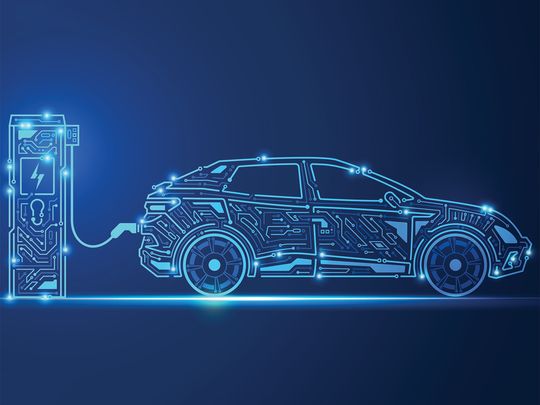
Last week, we spoke about the rise of a economic ‘multi-polarity’ in global relationships and alliance. It's worth noting that some of this new world order stems from advances in high technology driven by AI, which has levelled the playing field for new economic forces to compete with traditional powers.
This competition is prominently showcased across various forms, including social media platforms such as X, WhatsApp, TikTok, Instagram, Telegram and others. It is also evident in industries like drones and electric cars, and the latter is our focus due to its significant impact on the wider automotive sector and being such a widely consumed commodity.
Here, the disparity between the rising and traditional powers becomes apparent. The former boasts robust competitive capabilities, leveraging natural mineral resources like copper and lithium abundantly available within their geographies. They also benefit from relatively low production costs, particularly due to inexpensive labour.
Resorting to protectionism
In contrast, traditional forces find themselves lacking in these advantageous resources and cost-efficient labor. Attempting to stem the tide of this rising Asian surge, they resort to measures such as boycotts, financial support for their own industries, and a return to protectionism—a strategy they in the past have levelled against other nations.
The US Treasury Secretary Janet Yellen underscored this stance: "Washington will not tolerate the decimation of its new industries due to Chinese imports." She expressed concerns about the ‘excess capacity’ of Chinese industrial production, which leads to reduced prices, including for EVs.
The latest report published by the European Union on what it terms ‘Chinese distortions’ in telecoms, semiconductors, renewable energy, and EV sectors, aims at safeguarding European products from cheaper Chinese imports. The EU member states are noted for providing significant financial support to their industries. China contends that these measures, along with those implemented by the US, are designed to stifle its economic ascent.
The Chinese Commerce Minister Wang Wentao asserts that his country's electric car production relies not on subsidies but on innovation, a robust production system, and efficient supply chains. And that Chinese electric car sales in European markets are projected to reach 15 per cent next year.
Usurping Tesla’s dominance
The intensification of this competition arises against the backdrop of significant market shifts. After dominating car sales for years, America’s Tesla recently ceded its throne to Chinese electric car manufacturer BYD, whose sales surged last year to over three million cars, outpacing Tesla.
BYD's profits soared by 75 per cent following the establishment of Chinese electric car plants in Egypt, Thailand, Hungary, and Brazil. Such opportunities have prompted other companies to explore an entry into the electric car market.
Out of the 17.5 million EVs projected to be sold this year, a staggering 70 per cent will roll off Chinese assembly lines. In contrast, Chinese automakers hold only a 33 per cent share of the market, while Tesla's share is expected to hover around 9 per cent. This discrepancy has prompted the US to revoke tax breaks for electric car buyers if the metals or battery components originate from China.
China has consequently lodged a complaint with the World Trade Organization (WTO), alleging discrimination. They argue that, as the world's leading producer of electric car batteries, many Western-produced cars rely on batteries manufactured in China.
UAE, Saudi get started on EVs
A significant development in this realm involves the entry of some Arab countries into the arena. The Chinese automaker Nio announced last year that Abu Dhabi would invest $740 million in the Chinese company, while the first factory for electric cars was opened in Dubai. An electric car factory operated by Lucid commenced operations in Jeddah at the end of last year.
In 2022, Saudi Arabia launched Ceer Motors and earmarked $6 billion to establish a complex for electric car related metals and batteries. Morocco recently inked a deal with China to construct a $300 million factory for electric car battery production.
These advancements underscore the intensifying competition in newer industries, particularly EVs, where each participant can enjoy distinct competitive advantages. It is notable that countries endowed with abundant mineral resources, coupled with low production costs and dynamic markets, are poised to exert significant influence.













